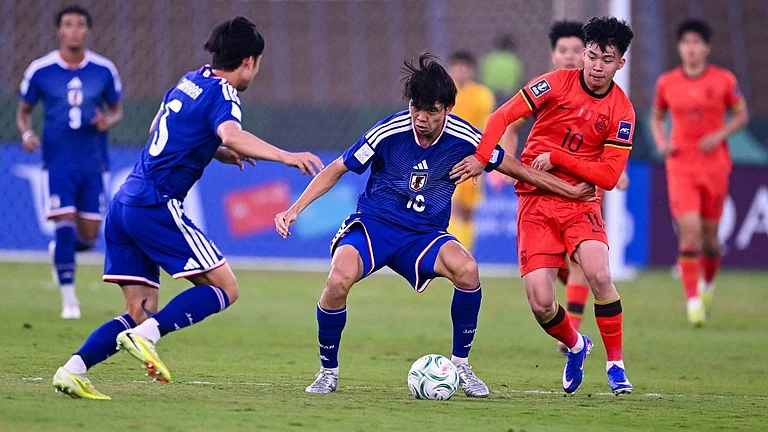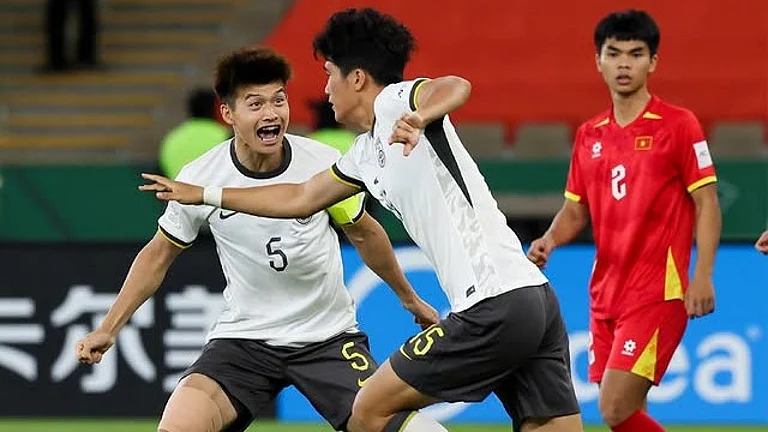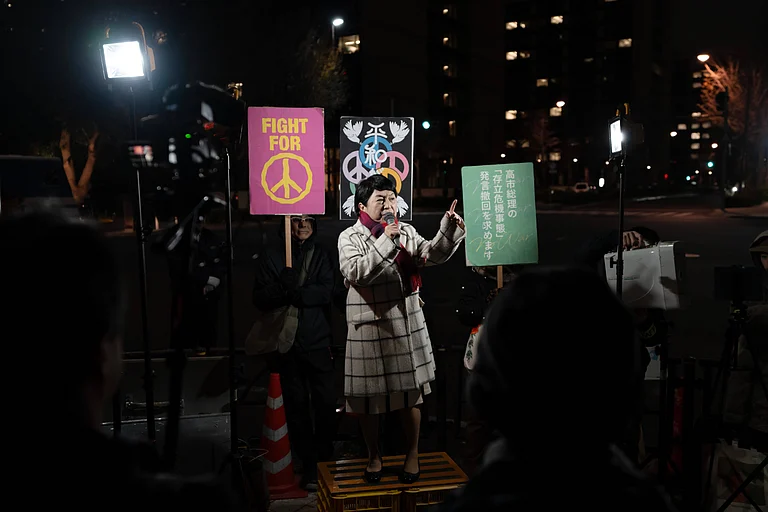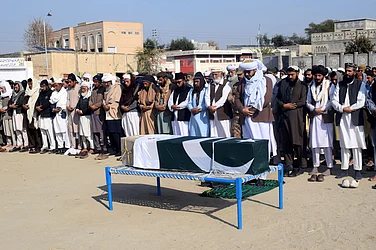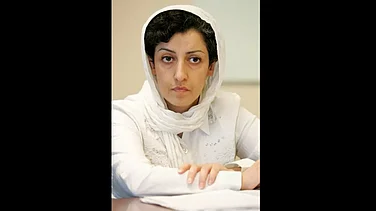The United States' defence commitments to Japan and the Philippines are "ironclad", US President Joe Biden said as he launched a new trilateral partnership in the Indo-Pacific among the nations.
In a meeting with Philippine President Ferdinand Marcos Jr and Japanese Prime Minister Fumio Kishida here on Thursday, Biden also asserted that any attack on Philippine aircraft, vessels or its armed forces in the South China Sea would invoke "our mutual defence treaty".
The US-Japan-Philippines trilateral comes after the creation of groupings in the Indo-Pacific, starting with the Quad, comprising India, the US, Australia and Japan, and the AUKUS consisting of Australia, the US and the UK, amid increasing concerns over China's military muscle-flexing in the region.
The US president said that "a great deal of history in our world will be written in the Indo-Pacific over the coming years".
"Today we commit to writing that story in the future together to build an Indo-Pacific that is free, open, prosperous and secure for all," Biden said as he described the US, Japan and the Philippines as "three allies, three steadfast partners and three proud democracies".
Biden said among the key areas where the countries are deepening ties are "first, technology and clean energy for securing our semiconductor supply chain".
"From securing our semiconductor supply chain to expanding trusted telecommunications in the Philippines, to building a clean energy workforce, to expanding our cooperation across the entire board," the US president said.
"Second, we are deepening our maritime and security ties. I want to be clear, the United States defence commitments to Japan and to the Philippines are ironclad. They're ironclad. As I've said before, any attack on Philippine aircraft, vessels or armed forces in the South China Sea would invoke our mutual defence treaty," he said.
Biden also announced launching an economic corridor in the Philippines as part of the G-7's partnership for global infrastructure and investment.
"This is the first corridor in the Indo-Pacific. It means more jobs for people across the entire region. It means more investment and sectors critical to our future clean energy, ports, railroads, agriculture, and much more," he said.
Japanese Prime Minister Kishida said in the midst of the compound crisis faced by the global community, multi-layered cooperation between allies and like-minded countries is essential if they are to maintain and bolster a free and open international order based on the rule of law.
"Today's meeting will make history as an occasion that significantly pushed forward such an initiative. Japan, the US, and the Philippines are maritime nations connected by the Pacific Ocean and our natural partners. We share fundamental values and principles, and have supported regional economic development," he said.
In his remarks, Philippine President Marcos said, "We meet today as friends and partners bound by a shared vision and pursuit of a peaceful, stable and prosperous Indo-Pacific."
It is a partnership born not out of convenience, nor of expediency, but as a natural progression of a deepening relation and robust cooperation amongst the three countries, linked by a profound respect for democracy, good governance and the rule of law, he said.
"Today's historic summit is a culmination of several preparatory engagements between our foreign ministries, our national security advisors, and our vice ministers, as well as the conduct of trilateral maritime exercises and joint development cooperation. But this meeting can be just a beginning," he said.
Facing the complex challenges of the present-time requires concerted efforts on everyone's part, a dedication to a common purpose and an unwavering commitment to the rules-based international order, Marcos said.
"This is a meeting that looks ahead as we deepen our ties and enhance our coordination. We seek to identify ways of growing our economies and making them more resilient, climate-proofing our cities and our societies, sustaining our development progress and forging a peaceful world for the next generation," he said.
The leaders in a joint statement issued later said the "historic" summit is the culmination of decades of partnership and builds on the recent momentum of the three governments' trilateral efforts.
"Our three nations share a firm commitment to a free and open Indo-Pacific that is connected, prosperous, secure, inclusive and resilient. We welcome coordination and cooperation with a wide range of partners who share these goals. In that spirit, we affirm our unwavering support for ASEAN centrality and unity, and the ASEAN outlook on the Indo-Pacific," the joint statement said.
"We underscore our support for Pacific Island countries and intend to transparently and effectively work in partnership with the Pacific Islands Forum (PIF) to support the 2050 Strategy for the Blue Pacific Continent," it said. The leaders welcomed efforts to support a peaceful and stable, and rules-based Indo-Pacific region, including from the Quad, the AUKUS and the US-Japan-Republic of Korea trilateral framework, according to the statement.







